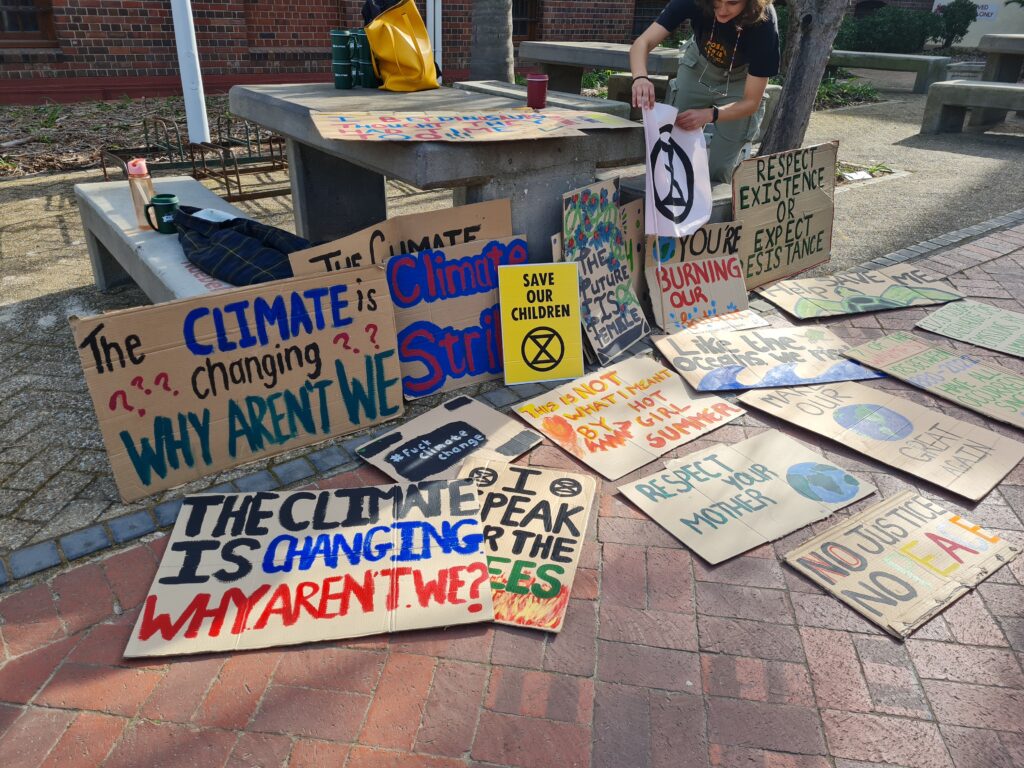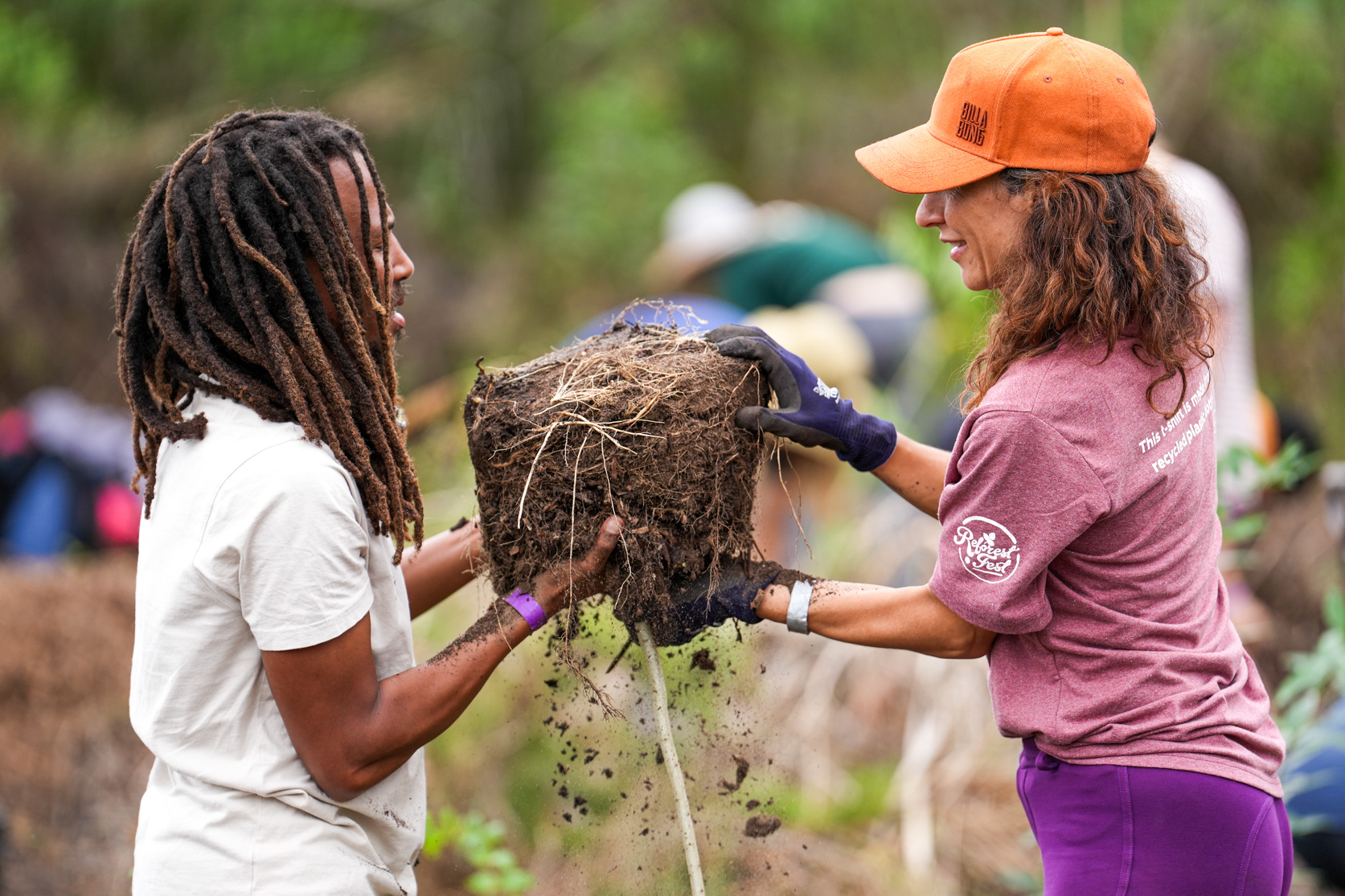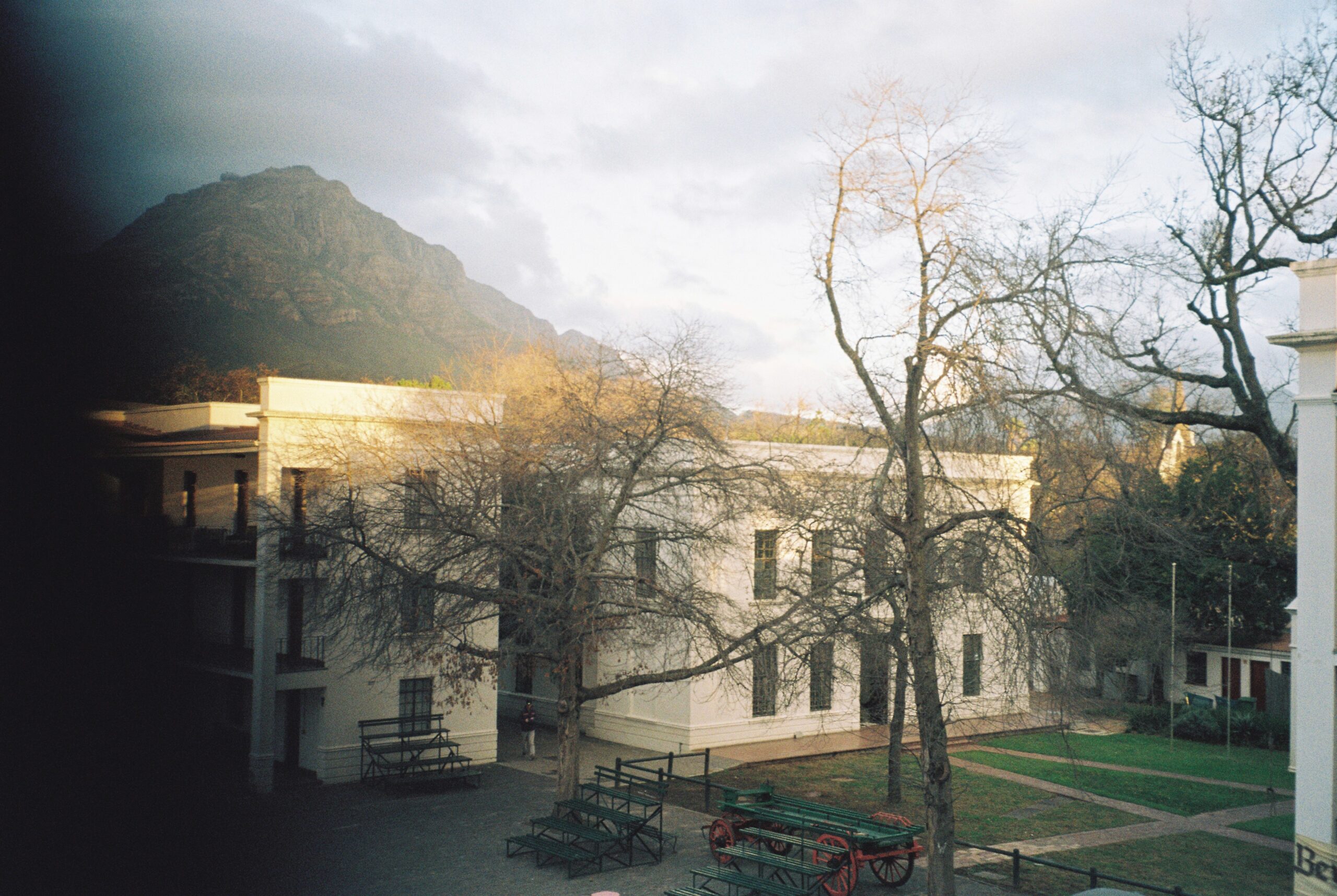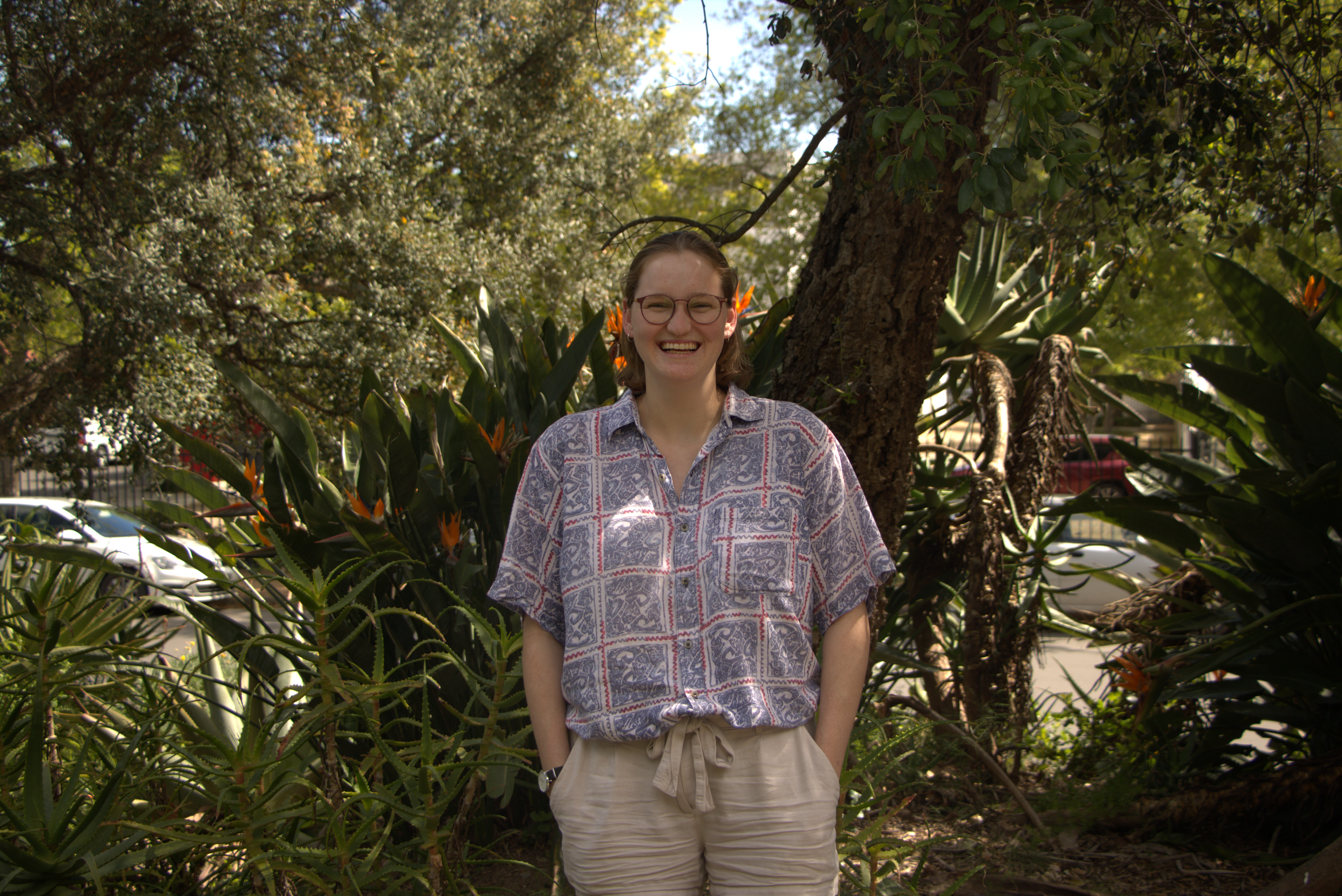By Tiaan Booyens
Should institutions like Stellenbosch University (SU) be expected to take more direct climate action? Fossil Free Stellenbosch (FFS), an expanding group of students, alumni and faculty staff at SU calling for its divestment from fossil fuels, says yes.
According to FFS, the divestment from fossil fuels is a growing global movement wherein stakeholders of educational institutions, among many other sectors, “[demand] that institutional investors decarbonise their investment portfolios to collectively undermine the market performance of the fossil fuel industry…” to pressure corporations into transitioning to renewable energy. Some notable universities who have pledged to divest from fossil fuels include Harvard University, Yale University, Cambridge University and the University of Cape Town (UCT).
Representatives of the FFS campaign made a list of demands pertaining to its divestment from fossil fuels to the administration of SU, alternatively the SU Investment Committee, at a panel discussion held at the CoCreate Hub on 20 September. The discussion about the possibilities and obstacles for divestment at SU was hosted in collaboration with Fossil Free South Africa, EcoMaties Stellenbosch and the United Nations Association of South Africa (UNASA) Stellenbosch Chapter and featured experts in different fields relevant to the conversation around divestment at SU.
The speakers were David Le Page, the founder of Fossil Free South Africa, Prof Stan du Plessis, Chief Operating Officer at SU, Prof Guy Midgley, Director of the SU School for Climate Studies, Mellony Spark, Impact Capital Investment Officer at Conservation International, Prof Bob Mash, Head of Division of Family Medicine and Primary Care at SU, as well as Ashley Francis, the former Executive Finance Director of UCT.

POSTERS made by EcoMaties to campaign for Climate Action. Photo Credit: Skyla Thornton.
The panel discussion offered an informative interdisciplinary perspective on institutional divestment from fossil fuels, and highlighted the contention around SU’s investment into the fossil fuel giant Sasol. An attendee of the event echoed FFS’s assertion that it does not align with SU’s responsibilities to its stakeholders to invest the university’s endowment in the fossil fuel industry “[considering] the declining viability of fossil fuels as a sustainable means of providing energy, and its egregious impact on the environment, biodiversity, and ultimately, human health and safety…” as stated in FFS’s statement.
Prof Du Plessis argued that it could do more harm than good to the institution to lose the benefits of SU’s investment into Sasol, ie. study bursaries and infrastructure developments, and posited that there would be no difference in the bigger picture of climate action if another company bought SU’s shares. Le Page countered that it would make a difference since institutional divestment sends a social signal that it is not morally acceptable to profit from the fossil fuel industry. Spark also argued against Prof du Plessis’s comment that individuals are just as responsible to combat climate change as institutions, by saying that such a statement “ignores the inequity of consumer’s reliance on fossil fuels, and institutions’ ability to be agents of social change.”
Le Page concluded by saying that the current climate change emergency calls for institutions to teach emergency climate action, and that SU choosing to divest from fossil fuels would be a good way to show “intellectual consistency and give moral standing to send that message.”
Anaïs Breytenbach, LLM Law student, newly elected chairperson of EcoMaties and Head of Legal Research at FFS, delivered the demands to SU at the panel discussion and announced a petition that other stakeholders of the university could sign in support of the cause. Spreading the word and taking action where possible is the best way for individuals to get involved according to Breytenbach.
“We want student participation in the university’s investment policy decision-making to reflect the student community’s demand for institutional accountability and for SU to actively align its investments with its sustainability goals,” said Breytenbach.
Prof Du Plessis said that representative bodies like the Student Representative Council (SRC) are students’ most effective way to ensure that their voices are included in conversations surrounding divestment at SU. Aphiwe Sithole, SRC member of Social Impact and Sustainability, commented that the SRC encourages the university to align with the call for fossil fuel divestment through “negative screening”, which gradually shifts new investment away from fossil fuel-related industries.
“We look forward to initiating a collaborative force with Fossil Free Stellenbosch in readdressing crucial issues such as this campaign and driving new projects in order to ensure our institution (SU) aligns with the ethical and sustainable goals in which need to be pursued extensively to [take] Climate Action,” said Sithole.
The petition for SU to divest from fossil fuels started by Fossil Free Stellenbosch can be found here: https://campaigns.350.org/petitions/fossil-free-stellenbosch-university?just_launched=true



